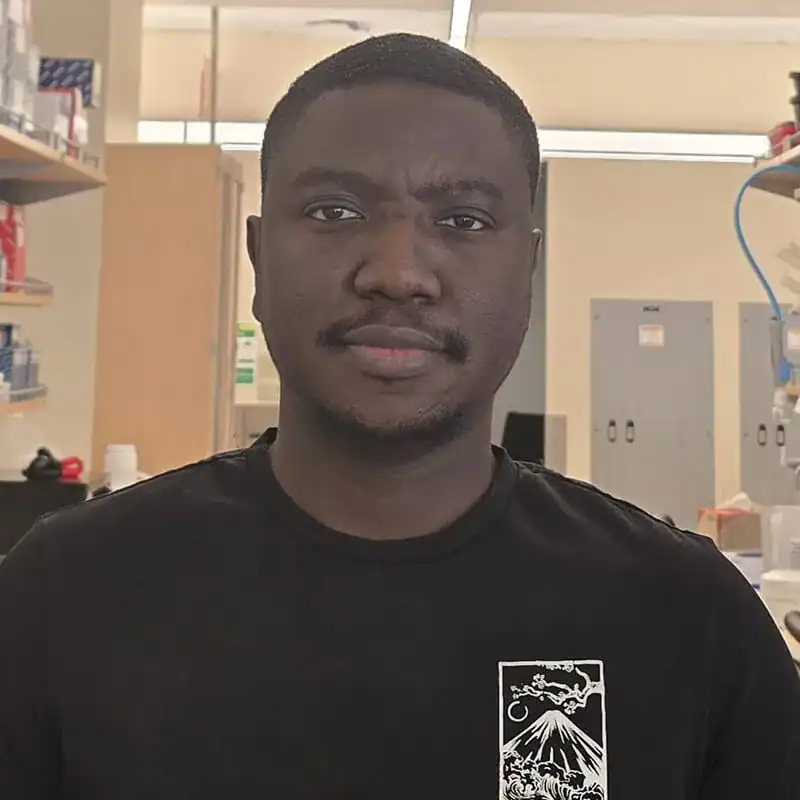T-cell acute lymphoblastic leukemia (T-ALL) is a rare and aggressive blood cancer. Unlike many other cancers, T-ALL cells carry few genetic mutations, which makes them hard for the immune system to recognize and even harder to target with immunotherapy.
Dr. Gbolahan Bamgbose is exploring a new frontier: overlooked regions of our genome known as “novel open reading frames” (nuORFs). These once-dismissed DNA segments can produce proteins, and recent discoveries suggest they may serve as potent triggers for immune responses. Dr. Bamgbose’s project will investigate whether nuORF-derived peptides can activate the immune system against T-ALL and whether these proteins play a critical role in helping leukemia cells survive. If successful, this work could identify entirely new classes of therapeutic targets, not just for T-ALL, but for other hard-to-treat cancers with low mutation burdens. “We hope to pave the way for therapies that either engage the body’s immune system or target these proteins,” he says. Dr. Bamgbose’s scientific journey began with exploring the medicinal properties of traditional Nigerian plants and expanded to uncovering treatments for parasitic diseases like ascariasis. For his PhD work, he transitioned to studying how genes are regulated during stress and development using Drosophila melanogaster (the common fruit fly). Now focused on cancer immunology, Dr. Bamgbose aims to investigate how T-ALL evades immune detection and seeks to find overlooked vulnerabilities in the genome that could be harnessed for new therapeutic strategies.
Sponsor
Birgit Knoechel, MD, PhD
Research Focus
T-cell acute lymphoblastic leukemia, T-cell response, low mutation burden
Projects and Grants
The role of novel open reading frames in T-ALL immunogenicity and oncogenesis
